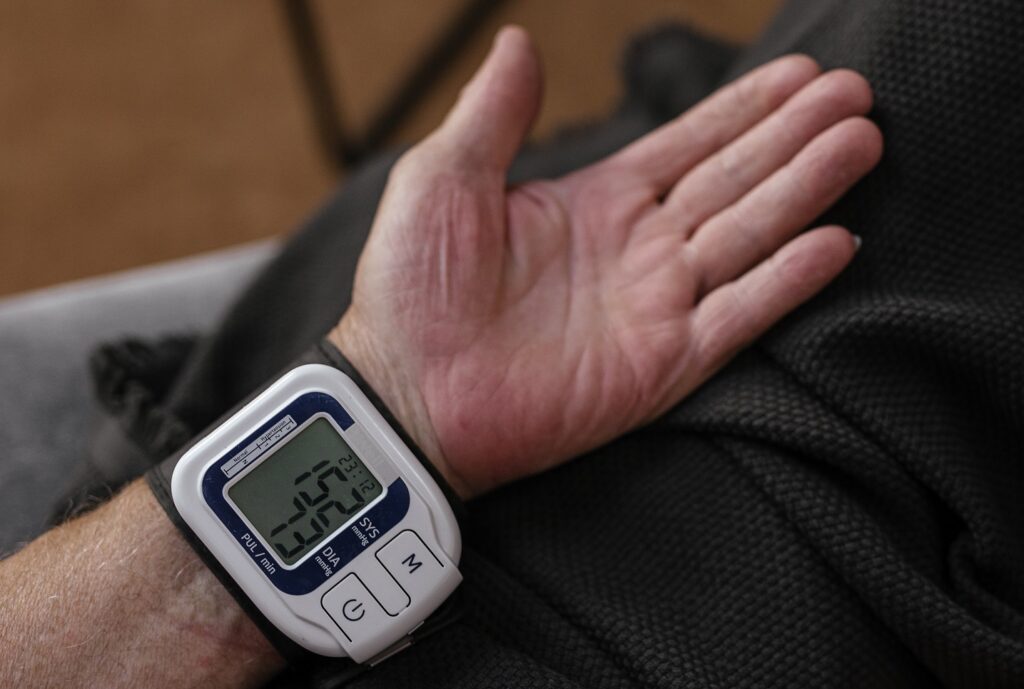Blood pressure is the force of blood against the walls of arteries as it circulates through the body. It is measured using two numbers, the systolic pressure (top number) which represents the pressure in the arteries when the heart beats, and the diastolic pressure (bottom number) which represents the pressure in the arteries when the heart is at rest. Blood pressure is an important indicator of heart health, and high blood pressure (hypertension) is a major risk factor for heart disease, stroke, and other health problems. In this article, we will discuss the guidelines for blood pressure and what you need to know to maintain a healthy blood pressure level.
The American Heart Association (AHA) and the American College of Cardiology (ACC) updated their guidelines for blood pressure management in 2017. According to these guidelines, normal blood pressure is defined as a systolic pressure less than 120 mm Hg and a diastolic pressure less than 80 mm Hg. Elevated blood pressure is defined as a systolic pressure between 120-129 mm Hg and a diastolic pressure less than 80 mm Hg. Stage 1 hypertension is defined as a systolic pressure between 130-139 mm Hg or a diastolic pressure between 80-89 mm Hg, while stage 2 hypertension is defined as a systolic pressure greater than or equal to 140 mm Hg or a diastolic pressure greater than or equal to 90 mm Hg.
It is important to note that blood pressure guidelines may vary based on an individual’s age, gender, and other health conditions. For example, older adults may have higher blood pressure readings due to arterial stiffness, while people with diabetes or chronic kidney disease may have lower blood pressure targets. Your healthcare provider will take all of these factors into account when determining your blood pressure goals.
In addition to these numerical guidelines, there are several lifestyle changes that can help manage blood pressure. These include:
1. Maintaining a healthy weight: Being overweight or obese increases the risk of hypertension. Losing weight through a healthy diet and exercise can help lower blood pressure.
2. Eating a healthy diet: A diet rich in fruits, vegetables, whole grains, and lean protein sources can help lower blood pressure. Limiting salt, saturated and trans fats, and added sugars is also important for heart health.
3. Exercising regularly: Regular physical activity can help lower blood pressure and improve overall heart health. Aim for at least 150 minutes of moderate-intensity aerobic exercise per week.
4. Limiting alcohol consumption: Drinking too much alcohol can raise blood pressure and increase the risk of heart disease. Men should limit alcohol to no more than two drinks per day, while women should limit alcohol to no more than one drink per day.
5. Managing stress: Chronic stress can raise blood pressure and increase the risk of heart disease. Finding healthy ways to manage stress, such as meditation, yoga, or spending time with loved ones, can help lower blood pressure and improve overall health.
6. Quitting smoking: Smoking raises blood pressure and increases the risk of heart disease. Quitting smoking is one of the best things you can do for your heart health.
If lifestyle changes alone are not enough to manage blood pressure, medication may be necessary. There are several classes of medications used to treat hypertension, including diuretics, ACE inhibitors, angiotensin II receptor blockers, calcium channel blockers, and beta-blockers. Your healthcare provider will determine which medication(s) are appropriate for you based on your blood pressure readings and other health conditions.
It is important to monitor blood pressure regularly, especially if you have a family history of hypertension or other risk factors for heart disease. Home blood pressure monitors are widely available and can be a convenient way to track our blood pressure readings. It is recommended to measure blood pressure at the same time each day and to sit quietly for a few minutes before taking the reading. Be sure to follow the manufacturer’s instructions for your home blood pressure monitor and bring it to your healthcare provider to ensure accuracy.
In addition, it is recommended to have regular check-ups with your healthcare provider to monitor your blood pressure and overall heart health. Your healthcare provider may recommend more frequent monitoring if your blood pressure is elevated or if you have other risk factors for heart disease.

